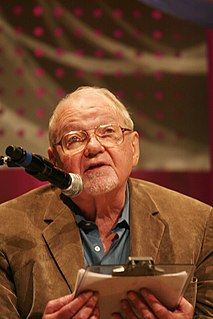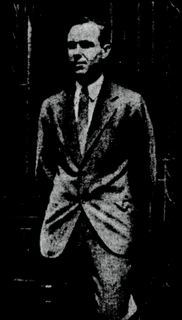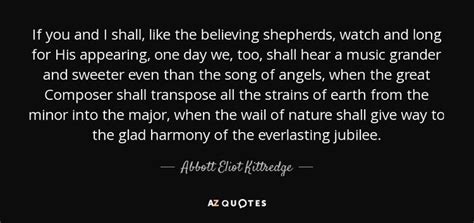A Quote by Ambrose Bierce
SPOOKER, n. A writer whose imagination concerns itself with supernatural phenomena, especially in the doings of spooks.
Quote Topics
Related Quotes
The greatest book is not the one whose message engraves itself on the brain, as a telegraphic message engraves itself on the ticker-tape, but the one whose vital impact opens up other viewpoints, and from writer to reader spreads the fire that is fed by the various essences, until it becomes a vast conflagration leaping from forest to forest.
Science fiction is the branch of literature that deals with the effects of change on people in the real world as it can be projected into the past, the future, or to distant places. It often concerns itself with scientific or technological change, and it usually involves matters whose importance is greater than the individual or the community; often civilization or the race itself is in danger.
Tempests, and bright lightnings, are to be sung; their nature is to be told, and from what cause they pursue their course; lest, having foolishly divided the heaven into parts, you should be anxious as to the quarter from which the flying flame may come, or to what region it may betake itself; and tremble to think how it penetrates through walled enclosures, and how, having exercised its power, it extricates itself from them. Of which phenomena the multitude can by no means see the causes, and think that they are accomplished by supernatural power.
I like something where I can really use my imagination and be an active participant in the construction of the monster and usually that's in the world of the supernatural or the world of the fantastic, so that's why those kinds of stories about demons and the supernatural appeal to me or maybe I'm really interested in that subject.
Science as we now understand the word is of later birth. If its germinal origin may be traced to the early period when Observation, Induction, and Deduction were first employed, its birth must be referred to that comparatively recent period when the mind, rejecting the primitive tendency to seek in supernatural agencies for an explanation of all external phenomena, endeavoured, by a systematic investigation of the phenomena themselves to discover their invariable order and connection.
The natural/supernatural distinction itself, and the near-equation of 'supernatural' with 'superstition', are scarecrows that Enlightenment thought has erected in its fields to frighten away anyone following the historical argument where it leads. It is high time the birds learned to take no notice.
A miracle is a supernatural event, whose antecedent forces are beyond our finite vision, whose design is the display of almighty power for the accomplishment of almighty purposes, and whose immediate result, as regards man, is his recognition of God as the Supreme Ruler of all things, and of His will as the only supreme law.

































